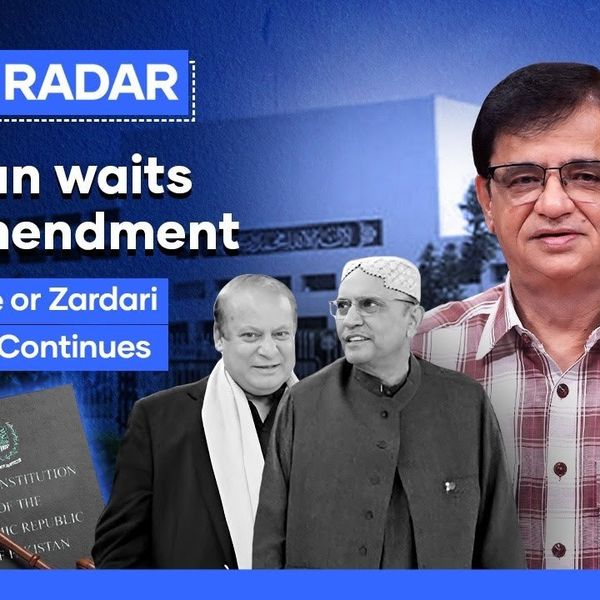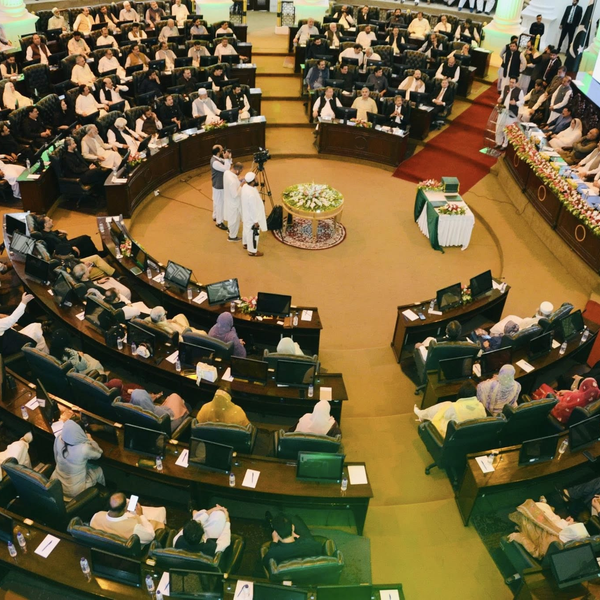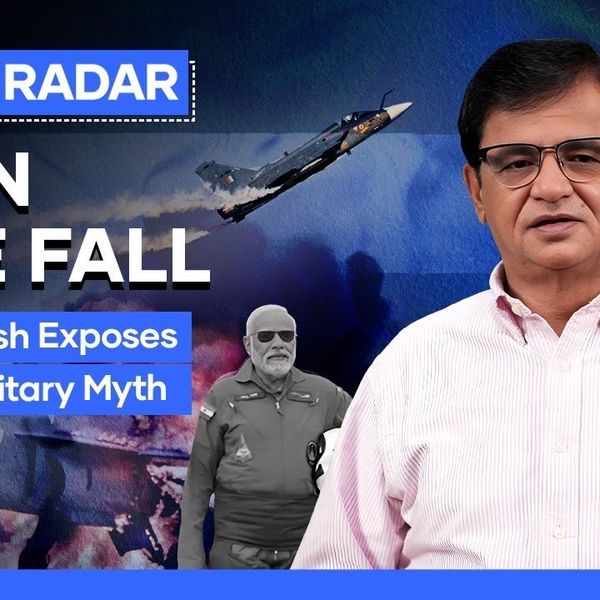Pakistan faces five crises at once as tensions soar on Afghan border
Kamran Khan describes Pakistan’s situation as a 'fivefold chaos' shaking politics, security, and the economy
News Desk
The News Desk provides timely and factual coverage of national and international events, with an emphasis on accuracy and clarity.
Kamran Khan says Pakistan has entered a period of unprecedented turbulence, facing simultaneous crises in politics, security, and the economy that threaten national stability.
Khan described the situation as a “fivefold chaos” gripping the nation, with tensions mounting on the Afghan border, rising terrorism, political infighting in Khyber Pakhtunkhwa (KP), violent protests by religious groups, and a sharp economic downturn.
“The national and international landscape of Pakistan has suddenly fallen into turmoil,” Khan said. “The political, economic, and geostrategic dimensions are all in chaos.”
Border clashes with Afghanistan
The first crisis, Khan said, is Pakistan’s escalating border conflict with Afghanistan. Fighting has intensified after what he described as “unprovoked aggression” by Afghan Taliban forces, who have reportedly aligned with India in both rhetoric and diplomacy.
Pakistan’s military, according to Khan, has responded forcefully. “The patience of Pakistan has run out,” he said. “Our forces have given a strong reply — more than 200 Taliban militants have been killed, and 21 border posts have been reclaimed.”
He cited the Inter-Services Public Relations (ISPR), which confirmed the deaths of 23 Pakistani soldiers during the clashes and claimed that a major Taliban camp, used for cross-border terrorism, was destroyed.
Meanwhile, Taliban spokesperson Zabihullah Mujahid’s claim that 58 Pakistani troops were killed made international headlines, appearing in outlets such as The New York Times and the Financial Times. “India is celebrating this one-sided narrative,” Khan said, noting that Afghan Foreign Minister Amir Khan Muttaqi was visiting New Delhi at the same time.
He added that Indian Foreign Minister S. Jaishankar assured Muttaqi that New Delhi would soon reopen its embassy in Kabul — a symbolic gesture of recognition for the Taliban government. “Afghanistan and India’s political romance has begun,” Khan remarked.
Rising terrorism and KP unrest
The second wave of turmoil, Khan said, comes from renewed terrorism inside Pakistan. The army recently blamed the PTI-led KP government for failing to curb militancy in the province.
“KP is once again the frontline in Pakistan’s war against terrorism,” Khan warned. “It faces the dual challenge of political instability and militant infiltration from across the Afghan border.”
A third crisis, he added, is political chaos in KP. Chief Minister Ali Amin Gandapur resigned on Imran Khan’s instructions, but his resignation was rejected by Governor Faisal Karim Kundi. The assembly has since elected Sohail Afridi as the new chief minister — a decision now challenged in court.
“The political tension in KP has reached its peak,” Khan said, adding that the provincial assembly speaker, Babar Saleem Swati, publicly reminded the military that “it is not the army’s job to run the parliament.”
Afridi, the newly elected chief minister, has also opposed any new military operation in the province, putting him at odds with the federal government’s counterterrorism stance.
Protests and economic fallout
A fourth source of unrest, Khan noted, is the ongoing protest by the religious party Tehreek-e-Labbaik Pakistan (TLP), which has blocked major highways linking Islamabad, Rawalpindi, and Lahore.
The demonstrations — sparked by Pakistan’s support for a Gaza ceasefire deal — have turned violent, leaving at least five people dead, including a police officer, and dozens injured, among them TLP chief Saad Rizvi.
“This agitation has severed key transport routes and deepened the sense of national paralysis,” Khan said.
The fifth crisis, he added, is economic. “In just six trading sessions, the Pakistan Stock Exchange has lost 11,900 points — a 7.5 percent drop,” he said. “Today alone, the market fell nearly 3 percent.”
He warned that political instability, security threats, and public unrest were undermining investor confidence and pushing Pakistan’s economy into red territory.
A call for internal stability
Khan concluded that KP, due to its location and volatility, has become Pakistan’s “flashpoint” — a province where domestic instability and regional conflict intersect.
“Those who once believed Afghan Taliban control offered a geostrategic buffer were mistaken,” he said. “Now, the same forces and their local allies, the banned TTP, have become two sides of the same coin.”
While Pakistan’s diplomacy has gained international recognition, Khan cautioned that the country must now “set its own house in order.”
“The era of concessions is over,” he said. “But before confronting external threats, Pakistan must urgently contain its fivefold chaos at home.”











Comments
See what people are discussing